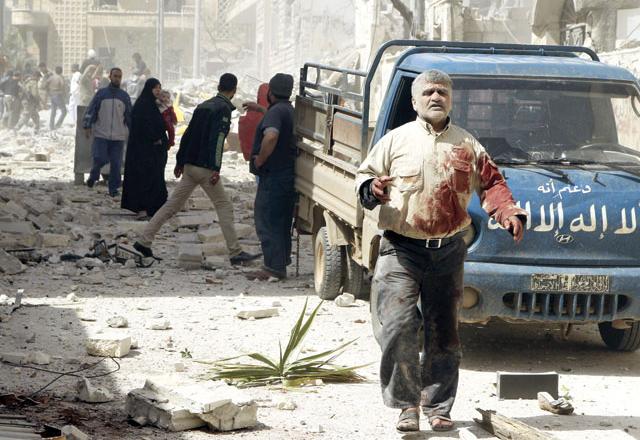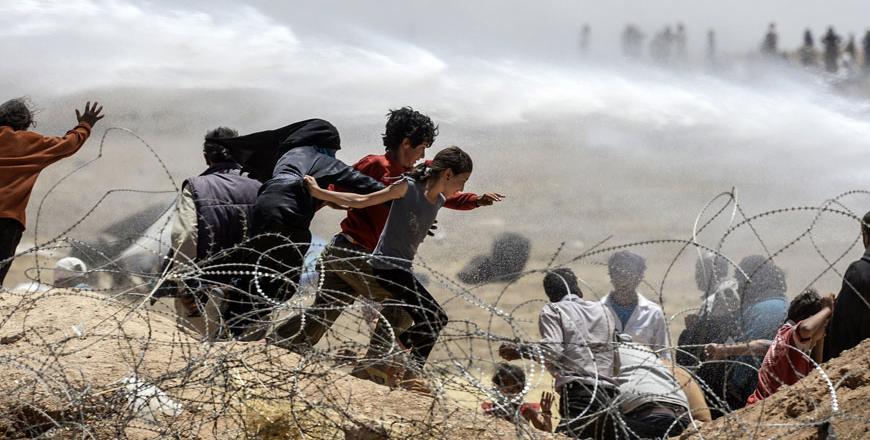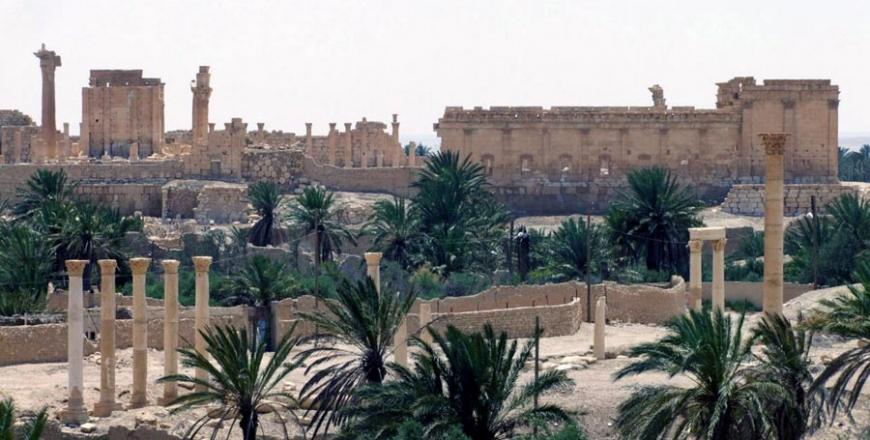You are here
Syrian Kurds see Daesh threat to city in northeast
By Reuters - Apr 21,2015 - Last updated at Apr 21,2015

BEIRUT — Daesh is preparing for a possible attack on a city in northeastern Syria near the border with Iraq where it remains a big threat despite recent setbacks, a Kurdish official told Reuters on Tuesday.
Hasaka province in northeastern Syria is strategically important for all sides and abuts Daesh-held territory in Iraq, where the group is back on the offensive after losing the city of Tikrit at the start of the month.
The Syrian Kurdish YPG militia has recorded significant victories against Daesh this year, driving it from the town of Kobani at the Turkish border and then taking two towns in Hasaka province with the help of a US-led air campaign.
But Daesh remains a danger, said Redur Xelil, YPG spokesman. Its targets include the provincial capital, Hasaka city, and the town of Tel Tamr, to the northwest. Daesh is still believed to be holding some 200 Assyrian Christians abducted in February from villages near Tel Tamr.
"South of Hasaka there are areas that Daesh controls entirely. There is a big Daesh mobilisation outside the city, and there are big fears of an attack on Hasaka city," Xelil said in an interview from the city of Qamishli via Skype.
For now, Daesh priority is Tel Tamr, where it aims to cut a YPG supply route, he added. Daesh was "trying to take big cities, to take the battle into cities" to mark it harder for the US-led alliance to hit it, he said.
Hasaka is home to many Syrians who have fled areas further west, including the country's second city Aleppo, he added.
The Syrian Observatory, which monitors the Syrian civil war, reports daily clashes between the YPG and Daesh fighters near Tel Tamr, and clashes between the Syrian military and Daesh in areas west and east of Hasaka city.
Air strikes
The YPG has emerged as the only partner for the US-led alliance bombing Daesh in Syria. But its effectiveness is greatly diminished beyond areas where the Kurds have set up autonomous zones since Syria's conflict erupted in 2011.
The United States, rejecting any partnership with President Bashar Assad against Daesh, is about to launch a programme to train and equip members of the mainstream Syrian opposition in order to fight the jihadists elsewhere.
Xelil said the YPG had not been consulted on the programme, adding that its requests for military supplies remained unmet.
Support for the YPG is a complicated issue for Western states because of the concerns of NATO member Turkey, which is worried about separatism among its own Kurdish population.
Since driving Daesh from Kobani in January, the YPG has secured a large area around the town, including villages within the provincial boundaries of Raqqa — Daesh’s de facto capital.
Daesh is the single biggest insurgent group in Syria, controlling areas in the east and the north.
In recent weeks, it has been mounting attacks well beyond those strongholds, targeting both insurgent- and government-held areas closer to Syria's main cities in the west.
Xelil said Daesh had adapted to the air strikes. They were digging trenches and moving fighters and equipment in small convoys.
"They have found ways to deal with this situation, moving from area to area in a hidden way, or at times when there are no planes, either surveillance or bombers," he said."
"The Daesh threat will continue, all the while it dominates wide areas where it has supporters."
Related Articles
BEIRUT — A Syrian Kurdish militia said it had recovered full control of the border town of Tel Abyad on Wednesday after Daesh militants raid
BEIRUT — The Syrian Kurdish YPG militia said it began an advance towards a Daesh-held town at the Turkish border on Saturday, thrusting deep
Daesh militants took control of areas of the historic Syrian city of Palmyra from government forces in fierce fighting on Wednesday, and the Syrian antiquities chief called on the world to save its ancient heritage from the jihadists.



















